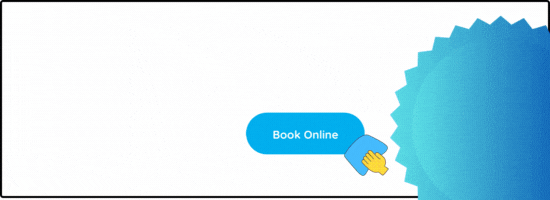Which is the most effective household disinfectant?

Table of Contents

Introduction
In these unprecedented times, keeping our homes clean and disinfected has become more important than ever. With so many household disinfectants on the market, it can be overwhelming to choose the most effective one for your household needs. From bleach to hydrogen peroxide and everything in between, we’ve got you covered with all the information you need to make an informed decision.
In this post, we’ll dive into the world of disinfectants and explore which ones are truly worth their weight in gold when it comes to killing germs and bacteria. So grab a cup of tea (or coffee!) and let’s get started!
You may also like to read about – “What are the types of disinfectants?“
The Different Types of Household Disinfectants
There are many different types of household disinfectants available on the market. Some are more effective than others at killing germs and bacteria. Here is a look at some of the most popular disinfectants and their effectiveness:

Bleach: Bleach is a very popular disinfectant because it is very effective at killing bacteria and viruses. However, it can also be dangerous if used improperly. Bleach should always be diluted before use and should never be mixed with other cleaners or chemicals.
Hydrogen peroxide: Hydrogen peroxide is another popular disinfectant that is effective against bacteria and viruses. Hydrogen peroxide can also be used as a bleaching agent.
Alcohol: Alcohol is a common ingredient in many household cleaners and disinfectants. It is effective against bacteria and viruses, but it can also be drying to surfaces.
You may also like to read about – “Your Pre-Move Cleaning Checklist to Ensure Every Corner is Sparkles“
Vinegar: Vinegar is a natural disinfectant that is safe to use around children and pets. It is not as effective as some of the other options, but it can be used in a pinch.

Pros and Cons of Each Type of Disinfectant
There are a variety of disinfectants available on the market, each with its own set of pros and cons. Here is a look at some of the most popular types of disinfectants and their advantages and disadvantages:
Bleach: Bleach is one of the most popular disinfectants due to its effectiveness against a wide range of bacteria and viruses. However, it can also be harsh on surfaces and may cause irritation if it comes into contact with skin. In addition, bleach is not effective against spores or some types of viruses, such as norovirus.
Alcohol: Alcohol-based disinfectants are typically less harsh than bleach and are effective against a wide range of bacteria and viruses. However, they can be flammable, so care must be taken when using them around open flames. Alcohol-based disinfectants are also not effective against spores or some types of viruses, such as norovirus.
You may also like to read about – “Significant sorts of surface disinfectants and their activity component“
Quaternary Ammonium Compounds: Quaternary ammonium compounds (or quats) are another popular type of disinfectant due to their effectiveness against a wide range of bacteria and viruses. However, they can be corrosive to some surfaces and may cause skin irritation if they come into contact with skin. In addition, quats are not effective against spores or some types of viruses, such as norovirus.
Hydrogen Peroxide: Hydrogen peroxide is an effective disinfectant against a wide range of bacteria and viruses. However, it can

Which Disinfectant is the Most Effective?
When it comes to disinfecting your home, you want to make sure you’re using a product that is effective against the widest range of bacteria and viruses. However, with so many products on the market, it can be hard to know which one to choose.
One of the most popular disinfectants is bleach. Bleach is a strong chemical that can kill a wide range of bacteria and viruses. However, it can also be harmful to surfaces and people if not used correctly. another popular choice is hydrogen peroxide. Hydrogen peroxide is less corrosive than bleach and can be just as effective against bacteria and viruses.
If you’re looking for a natural option, vinegar is a good choice. Vinegar is acidic and can kill some types of bacteria and viruses. However, it’s not as effective as bleach or hydrogen peroxide and can damage some surfaces if not used correctly.
You may also like to read about – “Top 7 Benefits of Hiring Dirt2Tidy House Cleaning Service“
The most important thing to remember when choosing a disinfectant is to read the label carefully and follow the instructions. That way, you can be sure you’re using a product that will be effective against the bacteria and viruses in your home without causing any damage.
How to Use Disinfectants Safely
There are a number of things to keep in mind when using disinfectants around the house. First, always read the label carefully and follow the instructions. Second, be sure to ventilate the area well when using any kind of cleaners, including disinfectants. Third, never mix different cleaners or chemicals together – this can be dangerous. Fourth, store all cleaners and chemicals out of reach of children and pets. Fifth, keep in mind that some surfaces may require special care – for example, delicate fabrics or surfaces that could be damaged by water. Finally, always dispose of any unused or expired cleaners according to the manufacturer’s instructions.

Conclusion
In conclusion, finding the most effective household disinfectant is a matter of personal preference. Regardless of which cleaner you choose to use, it is important to always follow safety instructions and use protective equipment when handling any chemical-based cleaners. Additionally, natural alternatives can be just as effective at killing germs without the potential risks associated with chemical cleaners. Ultimately, whichever option you choose should work well for sterilizing your home and keeping your family safe from any harmful bacteria or viruses.



